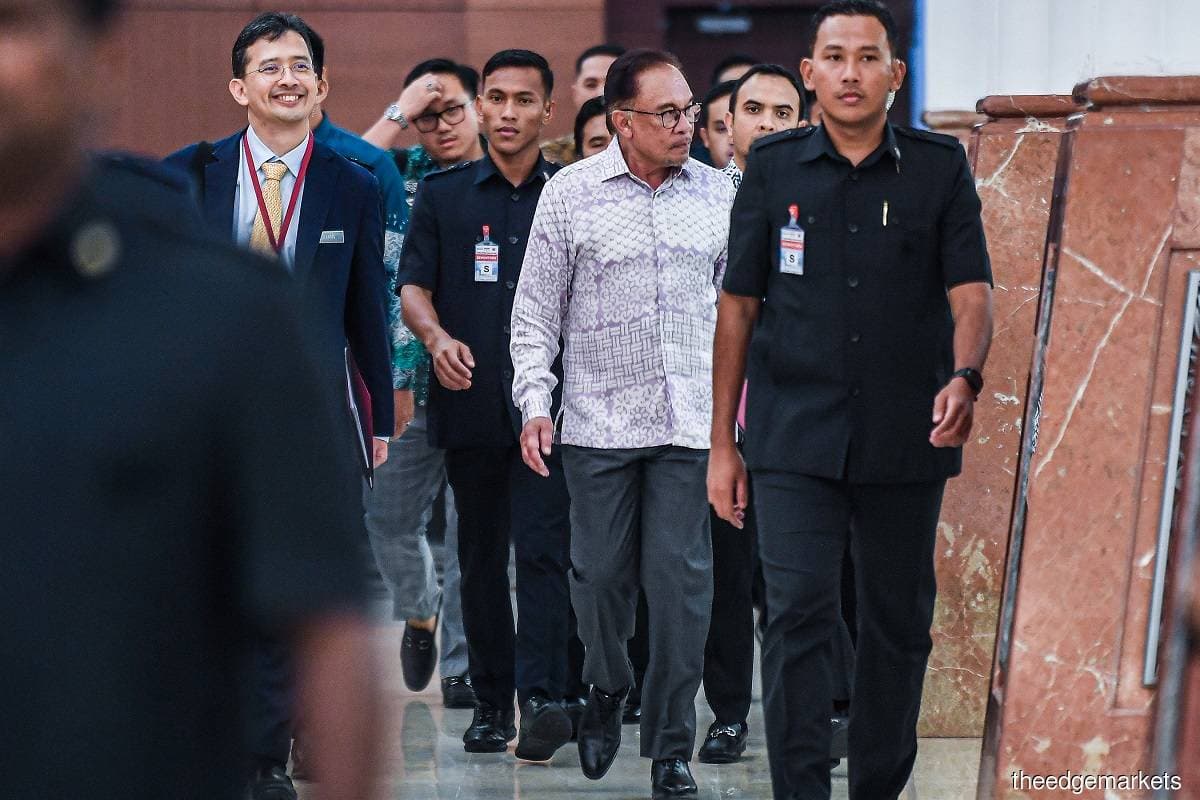
KUALA LUMPUR (March 14): The proposed Fiscal Responsibility Act (FRA) to improve governance, accountability and transparency in fiscal management is expected to be tabled in the Dewan Rakyat in June, said Prime Minister Datuk Seri Anwar Ibrahim.
“Insya-Allah, this [FRA] Bill is expected to be presented in Parliament in the second meeting in June 2023,” said Anwar, who is also Malaysia’s finance minister, during the minister’s question time in the Dewan Rakyat on Tuesday (March 14).
The introduction of the FRA and the Government Procurement Act — to improve the procurement process and ensure value for money in government procurements — is among the long-term measures planned to strengthen the country's fiscal position.
Anwar was responding to Sungai Petani Member of Parliament Dr Mohammed Taufiq Johari, who inquired on the government’s target to reduce the country's fiscal deficit from 5.6% in 2022 to 3.2% in 2025.
Anwar assured that the target is doable. For the aim to reduce the country's fiscal deficit to 5% in 2023, he said it would be contributed by the reduction in Covid-19 pandemic-related expenses.
He added that revenue collection and real gross domestic product in 2022 had exceeded the Oct 7, 2022 projection, and thus set the stage for higher tax revenue and expenditure projections for 2023.
“The 2023 revenue is expected to exceed the estimate, taking into account the successful US$1.8 billion settlement with International Petroleum Investment Company after [the announcement of the revised] Budget 2023,” Anwar also said.
As for the reduction in the deficit from 5% in 2023 to around 4% in 2024, he said it can be achieved taking into account the 2023 spending, including the one-off 1Malaysia Development Bhd (1MDB) bond repayment amounting to US$3 billion or around RM13.5 billion.
Meanwhile, he said the reduction in the fiscal deficit to 3.2% in 2025 is expected to be achieved through the results of new policies and directives, including the implementation of tenders instead of direct negotiations, as well as targeted subsidies that will reduce leakage.
For more Parliament stories, click here.